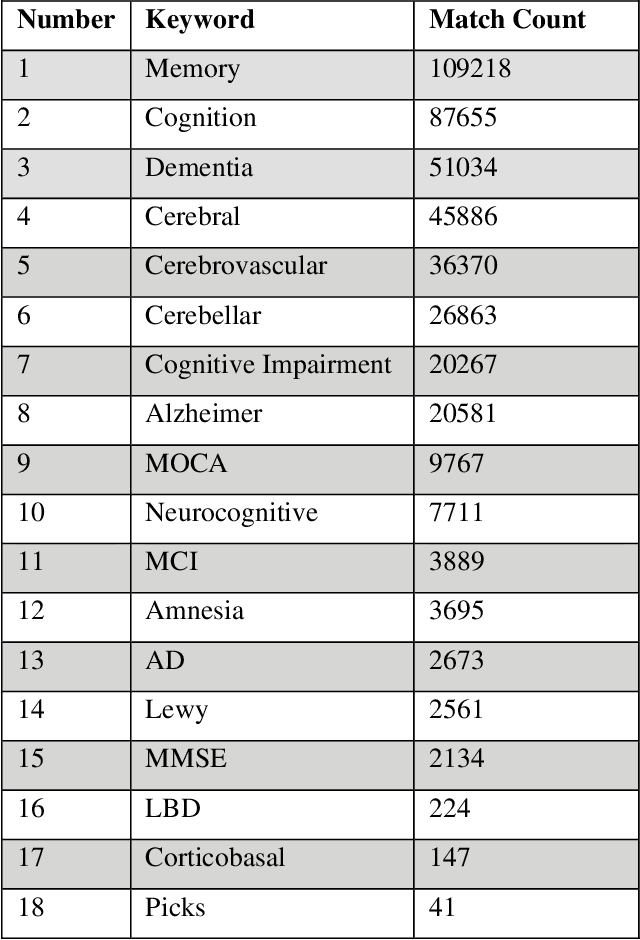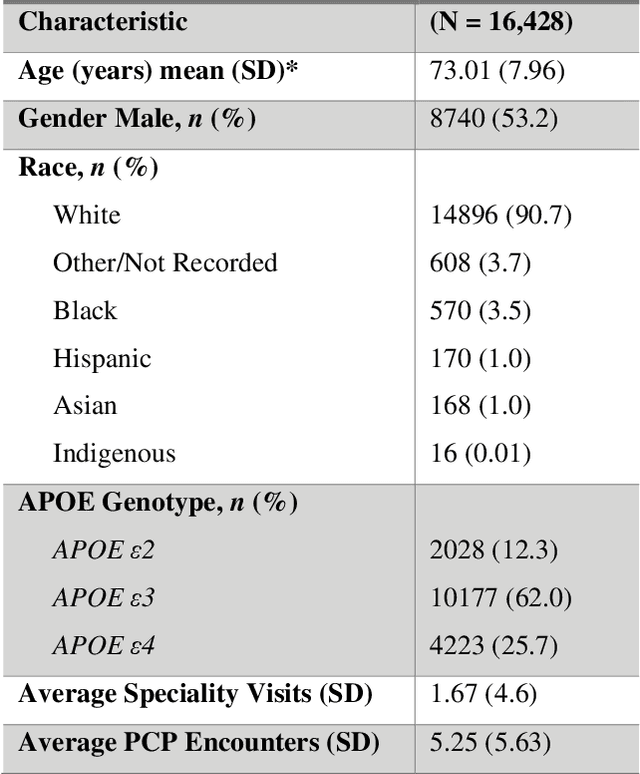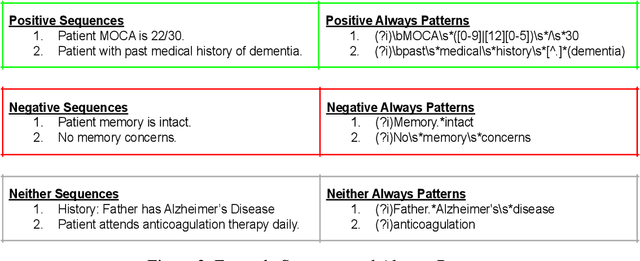NeuraHealthNLP: An Automated Screening Pipeline to Detect Undiagnosed Cognitive Impairment in Electronic Health Records with Deep Learning and Natural Language Processing
Paper and Code
Jan 12, 2022



Dementia related cognitive impairment (CI) affects over 55 million people worldwide and is growing rapidly at the rate of one new case every 3 seconds. With a recurring failure of clinical trials, early diagnosis is crucial, but 75% of dementia cases go undiagnosed globally with up to 90% in low-and-middle-income countries. Current diagnostic methods are notoriously complex, involving manual review of medical notes, numerous cognitive tests, expensive brain scans or spinal fluid tests. Information relevant to CI is often found in the electronic health records (EHRs) and can provide vital clues for early diagnosis, but a manual review by experts is tedious and error prone. This project develops a novel state-of-the-art automated screening pipeline for scalable and high-speed discovery of undetected CI in EHRs. To understand the linguistic context from complex language structures in EHR, a database of 8,656 sequences was constructed to train attention-based deep learning natural language processing model to classify sequences. A patient level prediction model based on logistic regression was developed using the sequence level classifier. The deep learning system achieved 93% accuracy and AUC = 0.98 to identify patients who had no earlier diagnosis, dementia-related diagnosis code, or dementia-related medications in their EHR. These patients would have otherwise gone undetected or detected too late. The EHR screening pipeline was deployed in NeuraHealthNLP, a web application for automated and real-time CI screening by simply uploading EHRs in a browser. NeuraHealthNLP is cheaper, faster, more accessible, and outperforms current clinical methods including text-based analytics and machine learning approaches. It makes early diagnosis viable in regions with scarce health care services but accessible internet or cellular services.
 Add to Chrome
Add to Chrome Add to Firefox
Add to Firefox Add to Edge
Add to Edge